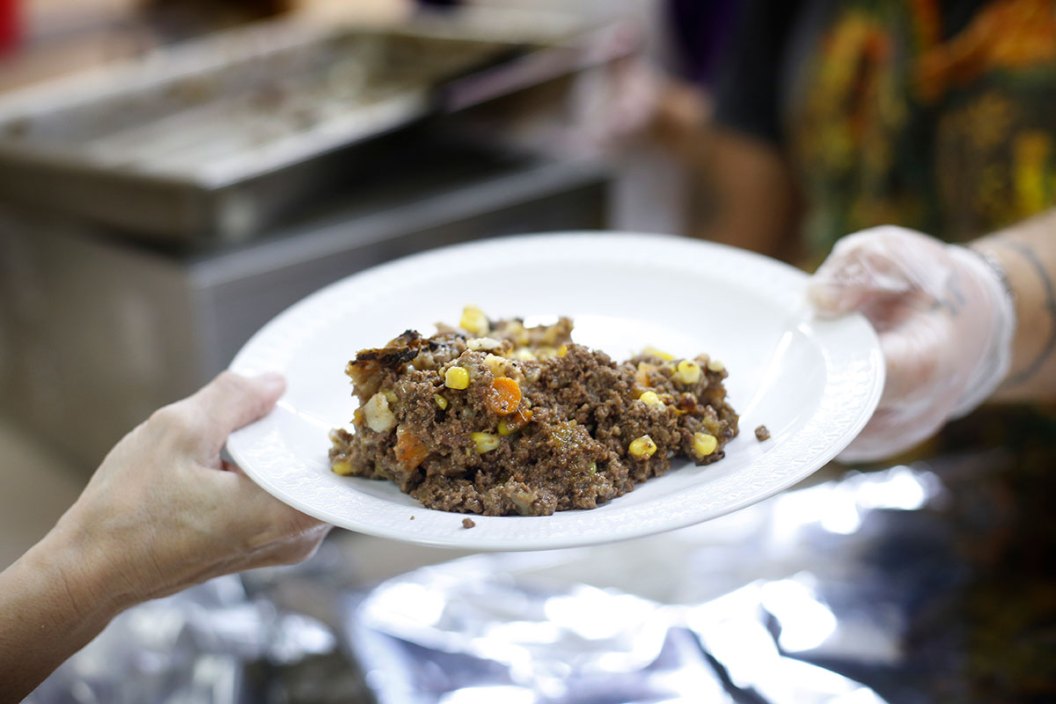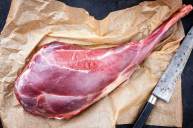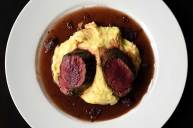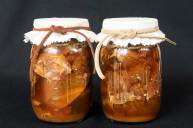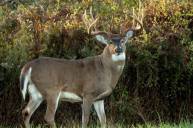Contribution of wild game meat is one of the most beneficial things that hunters can do. Here's how to donate venison.
Food banks and food pantries spend their time feeding the hungry in an effort to keep folks fed that need a hot meal and might not be able to afford it on their own.
Deer hunters have been there for these charitable organizations since their inception. Donating nutritious deer meat is one of the biggest ways wild game harvesters can give back to their community and beyond.
Participating processors take this job seriously. They use the whole deer as a natural resource to fill soup kitchens everywhere with ground venison for the use of those who need a helping hand.
There isn't anything wrong with wanting to do it all yourself, and give wild game to those you feel need it. But there are groups and organizations that have made it so easy, adn go through all the necessary protocol to make it safe and secure.
Non-profit organizations have been taking in donations of wild game meat as way to fed the hungry for many years, and most of these donations are even tax-deductible.
It isn't hard to participate. Simply field dress your deer and take it to a participating meat processor, and bring a valid deer tag from your state's legal hunting season.
Let's look at the ways that you can find a processor from your home state.
Venison Donation
Virtually every state in the union has some type of wild game meat donation program, including Alaska and Hawaii. According to the Congressional Sportsmen, "Research has shown that most adult Americans (87%) will support hunting if the primary motivation of the hunter is to procure meat. Game meat donation programs such as Buckmasters' Project Venison, Farmers and Hunters Feeding the Hungry (FHFH), Hunters Helping the Hungry (HHH), Hunters Sharing the Harvest (HSH), and Sportsmen Against Hunger (SAH) have been established in many states to facilitate the processing of meat and the donations to food banks."
One of the issues with the program is in finding the funds to cover the processing costs. Since many states do not cover that cost, they now allow sportsmen and women to donate money to the project at the time that they purchase their hunting license. This helps to defer the cost and streamline the process of donating venison to the hungry.
Maybe the best part of these programs is that many include any wild game meat that can be harvested, including moose, elk, antelope, waterfowl, and even pheasants and fish. Many states, such as Maryland and New York, give income tax credits to outdoorsmen for donating deer meat to specified non-profit organizations that distribute the meat to those in need. There's often some extra paperwork to fill out, but it's relatively easy.
As a further example of the liberal allowances for donating wild game from Alaska, the Last Frontier State says,
"A person may donate fish, game, marine or aquatic plants, or any part of fish, game, or aquatic plants, or a nest or egg of fish or game lawfully taken for subsistence, sport, or personal use to a food service program."
One very important item to note for those considering sharing their venison with the needy is that some 26 states are still in the midst of battling chronic wasting disease (CWD) in their whitetail deer populations. It is crucial to follow those state's department of health guidelines, and well as the rules set forth by the state wildlife agency, when considering venison donation and any testing of your deer that may be required.
Finding Venison Donation Programs
The easiest way to discover donation programs in your area is to search online. Pennsylvania's Share the Deer website is just one of many across the nation that are an easy click away on Facebook, there are sources on Twitter like Hunt Down Hunger, and you can even turn to Instagram to find them if you're savvy.
Organizations like QDMA are at the forefront of getting the word out to likely sources of game meat donation candidates like you and me to bend the ears of all legislators nationwide in the effort to "explore potential funding sources to cover processing costs which will further enhance the ability of these organizations to provide meals for their less fortunate constituents."
In Pennsylvania, State Rep. Eric Davanzo has long been a proponent of wild game donations from hunters, and has made efforts to get the word out on social media. In one post he says, "Hunters Sharing the Harvest (HSH) has distributed 1.5 million pounds of donated venison since 1991. Last year brought record donations for the organization, resulting in more than 160,000 pounds of venison distributed to provide 822,000 meals to Pennsylvanians in need."
Maybe one of the best reasons for Pennsylvanians to share their deer is, as Rep. Davanzo says, "Hunters can donate all or part of a harvested deer by taking it to a participating processor, which will then distribute the ground venison to food banks and pantries."
That means, at least in Pennsylvania, you don't have to feel that you can't keep some of your hard earned deer meat for your own freezer while still helping the needy.
Even a simple call to your local or state DNR, DEC, or other wildlife protection agency can be an easy and simple way to get information about wild game donation programs. The Congressional Sportsmen organization even offers some contact information for those looking for more information, and who might not have high speed internet access or know-how. They suggest you contact Kent Keene by phone (202)543-6850 x36 or by e-mail [email protected].
Donating to Make a Difference
There isn't much there to dissuade you from considering giving away some of your wild game meat, particularly deer meat, to a worthy cause. It's high quality, organic protein that could actually go straight to feeding someone who sincerely needs the assistance.
Think about it this way: your hard-earned game meat could go to someone who's never tried venison. They might just fall in love with it, for reasons you and I know all too well. They just might join the ranks of our community of hunters some day, and that would be a great thing.
But even above that, you can consider donating venison a charitable gesture, something that helps show the bright spots of hunting to a part of the general population that might know little about it.
And that would be a really great thing.
For wild game processing equipment and more, check out BassPro.com.
Looking for a little more or even hot lunch for your hunting blind? Follow my webpage, or on Facebook and YouTube.
NEXT: DEER PROCESSOR GUIDE: 7 THINGS TO LOOK FOR WHEN SEARCHING FOR A GOOD ONE
WATCH
